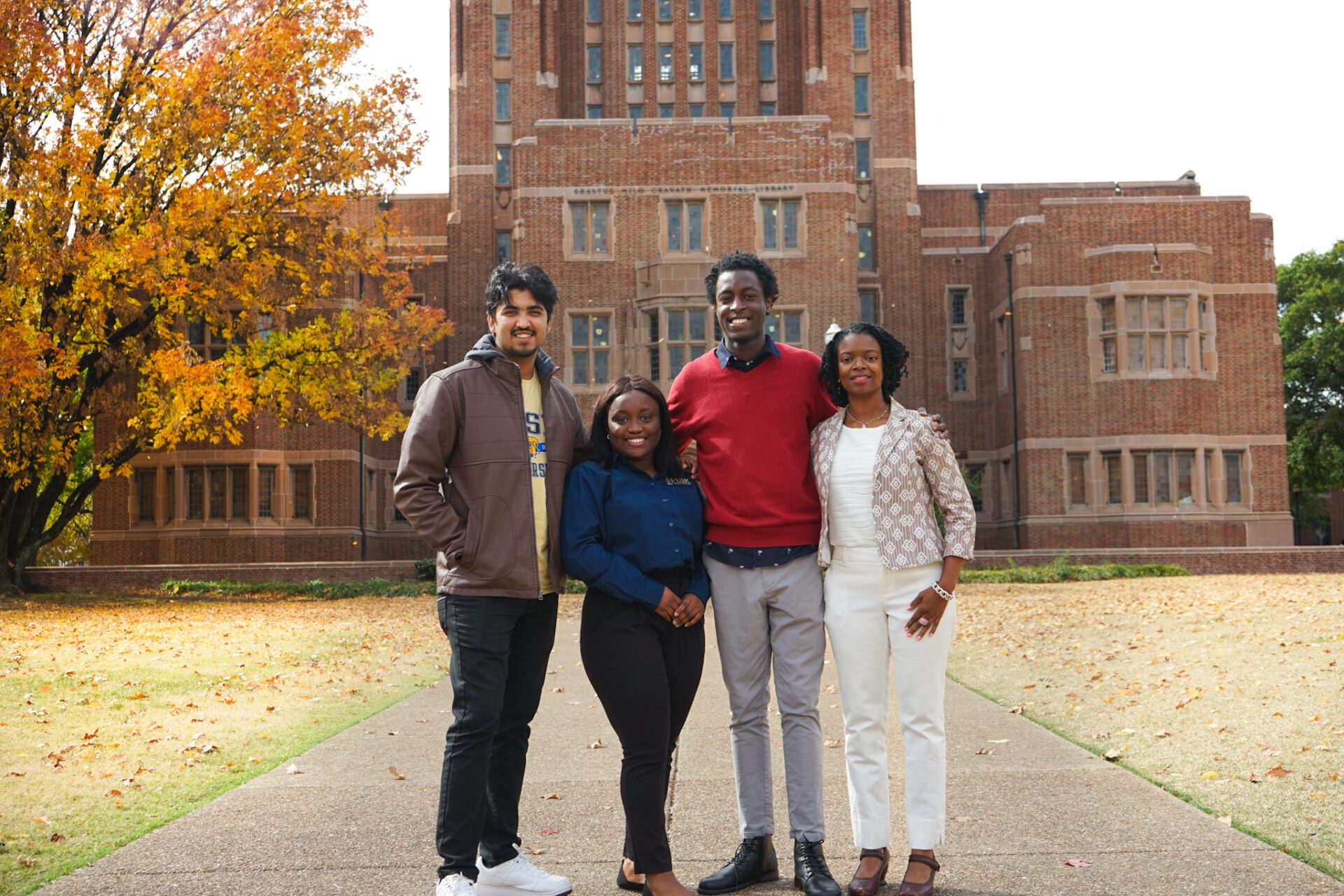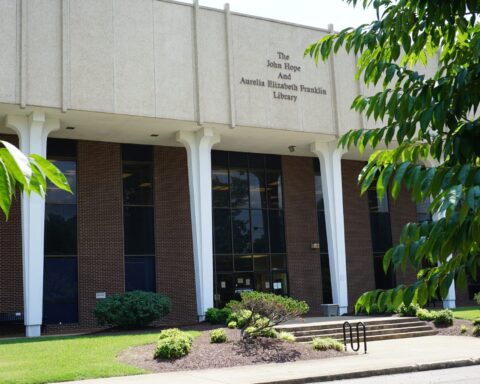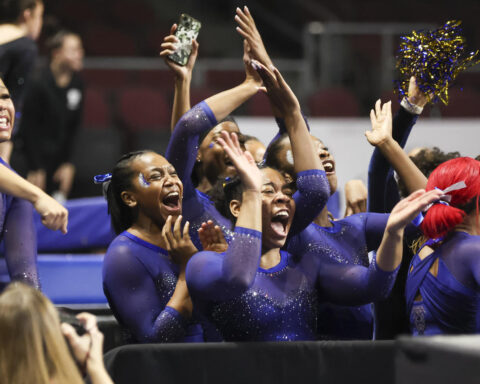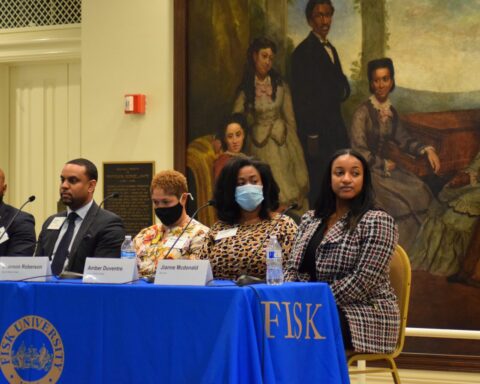Courtesy of Fisk University
242 students from 63 higher education institutions in 16 countries have been named University Innovation Fellows.
The University Innovation Fellows program empowers students to become agents of change at their schools. Fellows work to ensure that all students gain the attitudes, skills and knowledge required to navigate a complex world and build the future.
These student leaders from schools around the globe create opportunities to help their peers build the creative confidence, agency, and entrepreneurial mindset needed to address global challenges. Fellows create student innovation spaces, start entrepreneurship organizations, facilitate experiential workshops, work with faculty and administrators to develop new courses, and much more. They serve as advocates for lasting institutional change with academic leaders, lending the much-needed student voice to the conversations about the future of higher education.
The program is run by Stanford University’s Hasso Plattner Institute of Design (d.school). With the addition of the new Fellows, the program has trained more than 2,800 students since its creation.
“Higher education needs student leaders involved in shaping the experience of teaching and learning,” said Humera Fasihuddin, co-director of the University Innovation Fellows program. “This group of 177 join the 65 Fellows who were launched last month as part of an early training pilot that began over the summer.”
“The new Fellows are designing experiences that help all students learn skills and mindsets necessary to navigate these uncertain times and to shape the future they want to see,” said Leticia Britos Cavagnaro, co-director of the University Innovation Fellows program. “They are giving back to their school communities, and at the same time, they’re learning strategies that will help them serve as leaders in their careers after graduation.”
The new Fellows join the program from the following schools:
- Aditya College of Engineering
- Aditya College of Engineering and Technology
- Aditya Engineering College
- Bogazici University
- Bowie State University
- Catholic University of Uruguay
- Central Michigan University
- Elizabeth City State University
- Elon University
- Erasmus University Rotterdam
- FH Salzburg (Salzburg University of Applied Sciences)
- Fisk University
- Fordham University
- Georgia Institute of Technology
- Grand Valley State University
- Hamburg University of Technology
- Indiana University Purdue University Indianapolis
- Iona College
- Istanbul Technical University
- Jackson State University
- James Madison University
- Johnson Smith University
- Khalifa University of Science and Technology
- Koç University
- Lingnan University
- Lucian Blaga University of Sibiu, Romania
- Macquarie University
- Madanapalle Institute of Technology & Science
- Marshall University
- Menlo College
- Michigan Technological University
- Middle East Technical University
- Milwaukee School of Engineering
- Morgan State University
- National Institute of Development Administration
- North Dakota State University
- Oakwood University
- Ohio University
- Oregon Institute of Technology
- Prasad Potluri Siddhartha Institute of Technology
- Shaw University
- Sophia University
- South Plains College
- Southern Illinois University Carbondale
- Augustine’s University
- Swarthmore College
- Tennessee State University
- Tohoku University
- Universidad Católica del Uruguay, Salto-Punta del Este
- Universidad de Ingeniería y Tecnología
- Universidad de los Andes, Chile
- Universidad de Montevideo
- Universidad Peruana de Ciencias Aplicadas
- University of Cincinnati
- University of North Florida
- University of Puerto Rico at Bayamon
- University of Twente
- Utah Valley University
- UTEC
- V R Siddhartha Engineering College
- Vasireddy Venkatadri Institute of Technology
- Vidyavardhaka College of Engineering
- Virginia Tech
Fellows are nominated by faculty and administrators as individuals or teams of students and selected through an application process each year. Following acceptance into the program, students participate in a 6-week online training experience. During training, Fellows learn to analyze their campus ecosystems and identify opportunities for change related to innovation, entrepreneurship, design thinking, and creativity. They work to understand the needs of peers across disciplines and the perspectives of faculty and administrators. They apply this new knowledge and perspective to design new educational opportunities for their peers. After training, Fellows implement the projects they crafted. They continue to serve as change agents and leaders at their schools and beyond.
Faculty and administrators who guide Fellows, known as Faculty Champions, also have the ability to engage in a community of Faculty Innovation Fellows. This cohort-based program is a two-year experience that helps educators work to identify and design their own projects to make a difference at their schools. Led by a team of veteran Faculty Champions, candidates are part of a community of practice, collaborating with other faculty and staff from around the world to learn new change strategies.
About the University Innovation Fellows program:
The University Innovation Fellows program empowers students to become agents of change at their schools. The Fellows are a global community of students leading a movement to ensure that all students gain the necessary attitudes, skills and knowledge required to compete in the economy of the future. These student leaders from schools around the country create new opportunities that help their peers develop an entrepreneurial mindset, build creative confidence, seize opportunities, define problems and address global challenges. Fellows are creating student innovation spaces, founding entrepreneurship organizations, hosting experiential events, and working with faculty and administrators to develop courses. They serve as advocates for lasting institutional change with academic leaders and represent their schools at national events.





